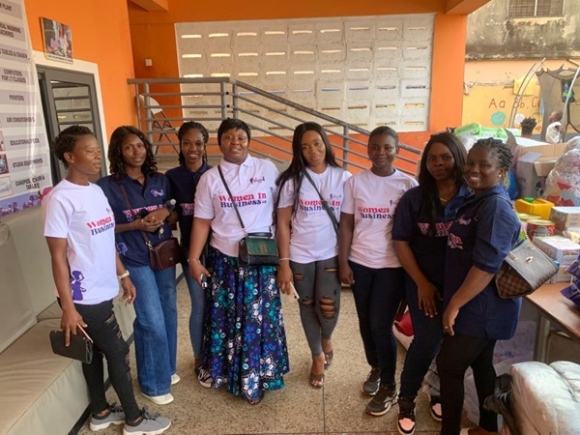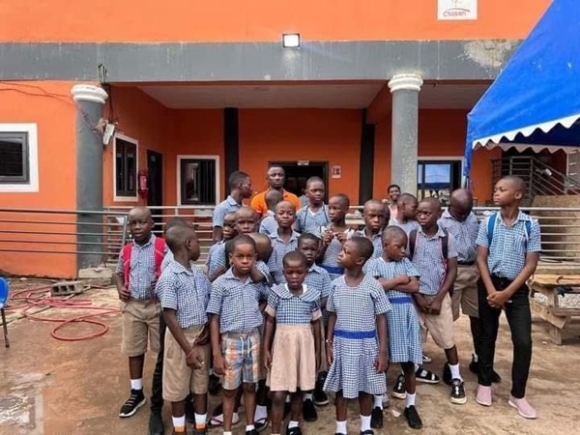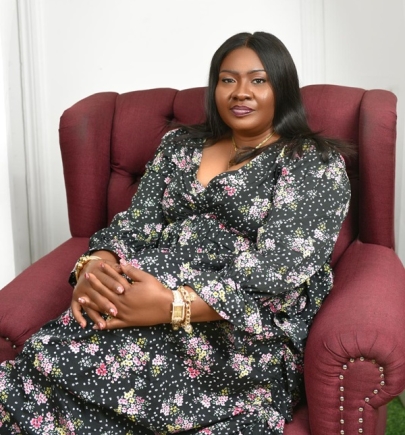Four years ago in December, two Ghanaian women, an entrepreneur, Cynthia Ohemaa Appiah and a Specialist Nurse (Cardiac Stressing Practitioner) at the Diana Princess of Wales Hospital in the United Kingdom (UK), put into action the idea of establishing an online community of women to empower them through entrepreneurship.
That was during the COVID-19 pandemic when social distancing -- restrictions on human interaction in an attempt to prevent further spread of the disease — made a difference between life and death.
The two also aimed at helping stay-at-home mothers to make some earnings online and create an avenue where working women could have a side hustle to improve their lives.
That idea marked the beginning of Women in Business GH (WIB), which today has more than 158,000 members on Facebook (FB) and a growing presence on TikTok.
In a telephone interview with The Mirror last Wednesday, the Deputy Chief Executive Officer (CEO) of WIB, Mrs Ofori, explained that the group was created in response to the evolving global business landscape — especially during and after the COVID-19 era — where digital commerce became essential, and physical retail was no longer the default.
On how they met, Mrs Ofori said: “We met on Facebook when a woman was having some financial difficulties and Cynthia and I had the same sentiments about the difficulty. From the comments section of that particular post, we realised there was no platform on FB for women in Ghana who had little or no capital to start something, and that was when the idea of WIB was born”.
Asked why the focus was on women, Mrs Ofori noted that women, particularly in Ghana and across Africa, form the majority of small-scale entrepreneurs.
She said many of them are stay-at-home mothers or individuals unable to afford high rent for traditional shops, and traditional advertising was often too expensive, which limited their reach.

She said WIB addressed that gap by offering a platform where women could start and grow businesses with little or no capital, including through drop-shipping and digital marketing.
Impact and offerings
Mrs Ofori said beyond being a marketplace, WIB was a safe, empowering space committed to providing low-interest loans or loans with no interest at all, depending on the situation, to support women-led businesses, fighting online scamming through community vigilance and policies and educating women on business growth, branding, finance and leadership.
She said the group also offered non-judgmental counsel, a supportive sisterhood behind the scenes and promoted health, social well-being, and personal development.
The group, she said, had been organising events such as yard sales, encouraging
discussions and sharing ideas on how to run and improve businesses effectively and sharing challenges, with the view to finding solutions, “and this has worked”.
“For instance, a woman who runs a business but is unable to attend to a particular transaction because she has a child to take care of could get some support frommembers who could either babysit or do a delivery on her behalf,” she said.

Mrs Ofori said the group had also helped in instances where big orders of goods were needed but a member could not meet the entire order, “in such cases, she could get other members who had the same goods to pool resources to meet the demand”.
The deputy CEO described WIB as more than a platform, saying, “It’s a movement, a digital sisterhood where women lead, thrive, and empower each other every day” and was full of praise for the moderators , Maame Sika Sarpong, Mavis Owusu, Ivy Okyere and Juliana Sey for their dedication to duty.
Membership
Asked how she combined her job as a nurse with WIB activities, Mrs Ofori said: “I don’t joke with my job as a nurse, there are no excuses, but it is all about time management, and remember, most of the WIB activities are online”.
Asked about some of the professions of members, Mrs Ofori said: “Oh, there are so many, farmers, hairdressers, beauticians, nurses, journalists, bead makers, fashion designers, wreath makers, bakers and service providers, like nannies. We have many Nigerian members too, and they all have verified codes to prevent scamming”.
On other activities, the deputy CEO said members also do some charity work by donating to the vulnerable in society, among others.
She mentioned, for example, a donation of assorted items to the Chosen Children Centre orphanage at Darkuman in Accra on January 5 this year.
Challenges
Asked about the challenges of the group, Mrs Ofori said some vendors short-changed some customers during the initial stages through false promotions and delivering products different from what they advertised, adding that such cases had drastically declined with a registration and verification process, which provided vendors with codes.
She said some customers also scammed vendors, creating an environment of mistrust, but that had improved tremendously.
Future plans
On plans going forward, Mrs Ofori mentioned, among others, collaboration with banks and financial institutions to provide small loans with low interest rates to help members expand their businesses, facilitation of savings schemes, organising more educational and financial literacy sessions and hosting business development workshops.
Family life
Mrs Ofori is married to Mr Joseph Ofori, and they have four children: Kwame, Nana Yaw, Papa Yaw and Maame Owusuah. She hails from Berekum in the Bono Region.
Writer’s email: doreen.hammond@graphic.com.gh/aamakai@rocketmail.com

